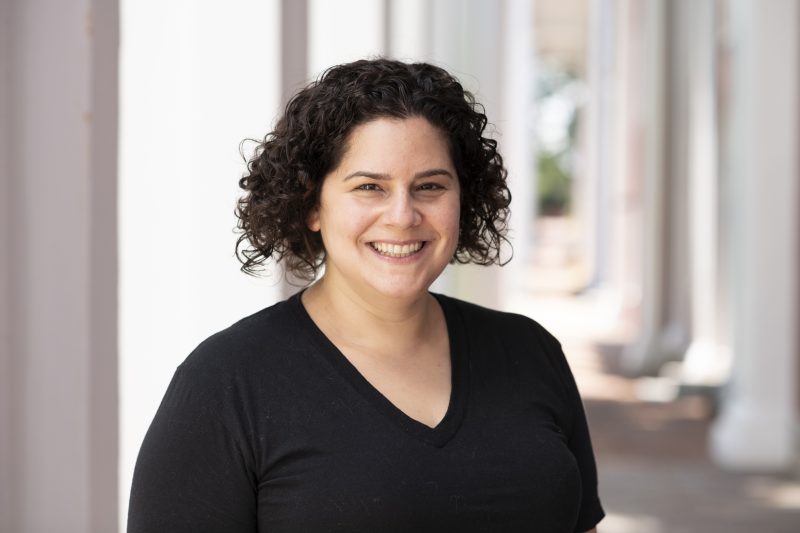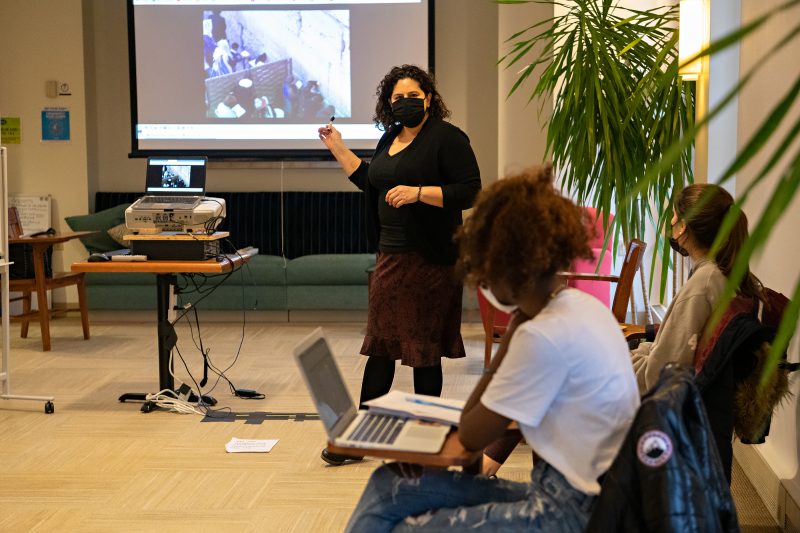Meet the Professor: Emily Filler Filler, an assistant professor in the Religion Department, joined the W&L faculty in fall 2020.
“Teaching in the humanities means that I’m always getting to sit with other people and work through questions that we care about, pressing one another to be more creative and precise in our interpretations and arguments.”
~ Emily Filler
Emily Filler joined the Religion Department at Washington and Lee University as an assistant professor in fall 2020. Her research focuses on modern Jewish and continental philosophy, political and ethical theory, and classical Jewish texts.
This past Fall Term at W&L, Filler taught two courses, American Judaism and Hebrew Bible/Old Testament. During Winter Term, she taught Religion and Violence as well as Women, Gender, and Sexuality in the Jewish Tradition.
We asked Professor Filler a few questions about her career in education.
1. Why do you teach?
People often imagine studying the humanities as a very lonely pursuit: a single person sitting alone in a room with a book. I love to read, but my best learning experiences have almost always been social and communal. I believe in “thinking together” about hard and important questions and texts; I think much less clearly or carefully by myself. Teaching in the humanities means that I’m always getting to sit with other people and work through questions that we care about, pressing one another to be more creative and precise in our interpretations and arguments. Of course, sometimes you have to sit by yourself to read and write — that’s part of the job of being a student or teacher — but I’m always thinking about debates I’ve had or questions students have asked.
2. Why study your subject at W&L?
I’ve come to think that questions about Jews and Judaism are, for better or worse, pretty foundational in western politics, philosophy and culture; consider how many recent American public conversations have revolved around antisemitism, Israel, cultural representation or religious freedom. These public debates tend to be pretty uninformed, though; my classes invite students to think about these themes in much more sophisticated ways.
Studying Judaism means being attentive to a set of big questions through the lens of a minority community and tradition, so it’s also a good way to study more dominant cultures through a different set of eyes. More generally, it’s important to me that students experience the study of religion and philosophy not just as weighty but also as creative, funny and ironic. Just because we’re studying “religious” themes doesn’t mean we always have to be serious!
3. What would be your dream course to teach?
I love taking student requests, so I often create courses based on student interest. For myself, I’ve wanted to teach a course in religion, philosophy and science fiction for ages. There’s an extraordinary amount of good sci-fi literature that I’d love to read with students.
If you know any W&L faculty who would be great profile subjects, tell us about them! Nominate them for a web profile.
 Emily Filler, assistant professor of religion
Emily Filler, assistant professor of religion Assistant Professor of Religion Emily Filler teaches Women, Gender and Sexuality in the Jewish Tradition in John Elrod Commons.
Assistant Professor of Religion Emily Filler teaches Women, Gender and Sexuality in the Jewish Tradition in John Elrod Commons.
You must be logged in to post a comment.